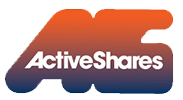Since 2014, Precidian Investments has sought Securities and Exchange Commission (SEC) approval for a new kind of active exchange-traded fund (ETF) that does not disclose its daily holdings. No longer.
Taken from: Brown Brothers Harriman’s Exchange Thoughts ETF Newsletter by Shawn McNinch, Ryan Sullivan and Alison Flores.
On May 20, the SEC gave Precidian Investments approval to license its ActiveShares actively managed, non-transparent ETF structures – the first ETF of its kind to gain initial approval by the SEC. The approved filing limits ActiveShares ETFs to holdings listed on US exchanges that trade during the same hours as the ETF. The approval may open doors to new product types.
Currently, ActiveShares has license agreements with nine fund managers, including Legg Mason, BlackRock, Capital Group, JP Morgan, Nationwide, Gabelli, Columbia, American Century, and Nuveen. The ActiveShares approval represents a major milestone as it is the first pure ETF product where managers are packaging active strategies in a non-transparent manner.1 Active managers who have hesitated to venture into ETFs may now make their strategies available to a wider audience of investors without revealing their “secret sauce.” Until now, active managers have been entering the ETF market through smart-beta indexed funds or actively managed transparent ETFs.
In this edition of Exchange Thoughts, we discuss the potential features of this new structure and highlight key considerations for managers contemplating this model.

What is ActiveShares?
ActiveShares is a new type of ETF structure that allow its managers to shield their investment strategy to investors and the public. While most ETFs today require daily portfolio disclosure, which exposes active managers’ trading strategy, the ActiveShares funds will disclose daily holdings only to an “authorized participant representative,” a new role within the ETF ecosystem. Authorized participant representatives are the only entities outside of the fund’s manager and the custodian to see the funds underlying positions and will use a confidential account to acquire and dispose of the underlying basket securities on behalf of the authorized participant (AP). Lastly, the industry expects ActiveShares will have the same key benefits as traditional ETFs, such as tax and cost efficiency, and broker-dealers could add these products to intermediary platforms as they do with ETFs today.

